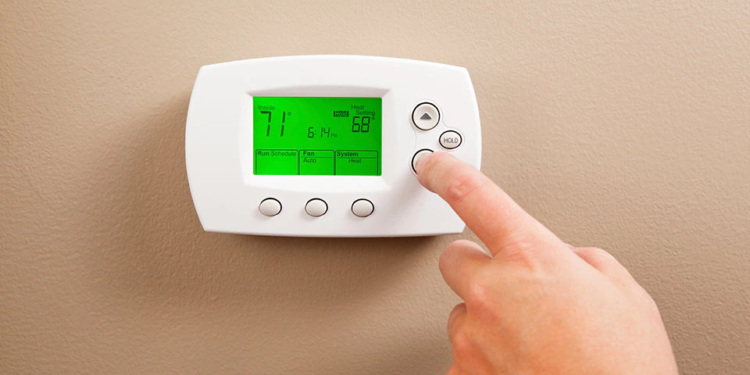There igrice are a few important things you can do to help winterize your vacant home if you are a snowbird who moves south for the winter. While you are away for an extended period of time, taking the appropriate steps to winterize your home can help prevent theft, water damage, heating or electrical system malfunctions, and other potential threats.
Simple actions like unplugging appliances, shutting off the water supply, and draining water lines can prevent disaster when you return from the holidays.
It is essential to winterize your vacant home before you leave, regardless of whether you are flying the coop for the entire winter or taking a lengthy holiday break. You run the risk of coming home to significant and costly damage if you don’t take preventative measures. Our team at Mojtrg.me created a list of things you can do to winterize your home.
Winterization: What is it?
The process of getting a house ready to be vacant during the winter is known as winterization. In most cases, you should take these preventative measures this fall, prior to the winter season. Being proactive can help prevent damage from bursting water pipes and other problems with your home and property.
Before you leave garsonjera
Heating System Maintenance
Take the time for preventive maintenance before you give your heating system a workout this winter. It might help you find potential issues and extend the life of your system.
Prior to winter:
Before the cold weather arrives, have your heating system serviced and inspected by a licensed professional. Before you leave, fill up your fuel tanks and set up periodic fuel deliveries if necessary. While you are away, have someone regularly check the fuel and heat levels.
If you need to keep the heating system running, make sure to keep the electricity running. Consider having a licensed electrical contractor inspect your main electrical panel, wiring, and outlets if you want the home’s electrical service to remain operational while you are away. Replace or repair anything that might be broken. At least once a year, prior to the start of the heating season, have a licensed contractor check and service your boiler or furnace. On forced-hot-air systems, clean or replace the furnace filter.
At least once a year, have a licensed contractor check and service your chimney. Make it a priority to have creosote buildup removed from fireplace and wood stove chimneys.
In the winter:
Throughout the winter, fill your fuel tanks and monitor their levels. Because the temperature inside the walls where the water piping is located is colder than the temperature in the living areas, set your heat to at least 55 degrees. To maintain a uniform temperature throughout the house, open the doors to unoccupied rooms. Follow the manufacturer’s instructions when maintaining your pellet or wood stove.
Maintenance of insulation
Is your insulation ready to keep you warm? It is well worth the time and effort to have your insulation examined because it serves as an essential barrier against the blustery winds and subzero temperatures of winter. Before the start of the cold weather season, upgrade the weather stripping and insulation.
Ice dam prevention requires more insulation in the attic. The roof’s ice and snow may warm if too much heat escapes into the attic. It can form an ice dam when it refreezes, which can result in water damage to your home or even a roof collapse. To prevent drafts and heat loss, caulk windows and install weather stripping around doors. Storm windows can be installed if necessary and window screens removed.
Winter security measures odmor
As you plan for winter, following are some extra security estimates that can be viable preventive moves toward taking before the virus season starts.
Trees should be trimmed and dead branches removed to prevent damage to your home or injuries to others if they fall on ice, snow, or wind.
To help ensure that the snow that is melting can drain properly, clear the gutters of sticks, leaves, and other debris. Check to see that the downspouts are directing water away from the foundation. Make steps and handrails safer in the ice and snow by fixing them. Replace the batteries in carbon monoxide detectors, fire alarms, and smoke detectors to ensure their proper operation. Turn off every single superfluous apparatus, like your oven and microwave, before you leave.
Make your home less appealing to pests
To help keep new “residents” from moving in, thoroughly clean your home. Refrigerators and freezers should be cleaned, defrosted, and unplugged, with the doors propped open to prevent mildew. Wipe them dry. Clean the oven as well.
Check your house for holes that animals might use to get in. For instance, keep the fireplace flue closed because bats, birds, and squirrels have been known to enter this way.
To ensure that there are no significant flaws, check the weatherstripping, the insulation, and the doors and windows on the exterior. These openings allow insects and water to enter. A chimney service should inspect and, if necessary, clean chimneys to ensure that they are free of obstructions like nesting birds. Screen caps with chimney guards can help keep insects out.
Prepare for emergencies
Provide emergency notification numbers and notify the police department that the property will be vacant.
Make sure that the fire alarm system and sensors are regularly tested, and that smoke detectors are installed on at least every floor. They should be connected, ideally, to a fire alarm system that is constantly monitored so that the fire department will be notified in the event of an alarm.
Install storm shutters to secure windows in coastal or higher wind-exposed areas.
In case of an emergency, ask a trusted relative, neighbor, or friend to keep an eye on your home. Give them admittance to your home so they can routinely screen warming, electrical and water frameworks.
Have them check the roof’s edge for ice dams and look inside for leaks if the weather turns cold. Make sure they have your phone number and a list of contractors in the area they can call if they need repairs or service.
Because your home is your largest investment, it’s smart to protect it while you’re gone for the winter.













